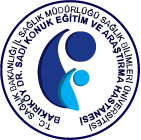ABSTRACT
Objective:
Adiponectin from adipocytokines plays role in neuro-inflammation, neuroimmunoendocrine system modulation and immune system regulation and has anti-inflammatory and protective effects. It functions by interacting pro-inflammatory cytokines, vasoactive peptides and complement proteins through peripheral and central mechanisms. The studies related to immunopathogenesis of Multiple Sclerosis (MS) progressing with neuroinflammation and neurodegeneration are focused on immune cells, cytokine, chemokines, membrane proteins, adhesion molecules and gene polymorphisms. We planned to determine the role of adipocyte related adiponectin in MS immunopathogenesis since the immunological functions of adipose tissue has drawn attention in the last years.
Material and Methods:
Adiponectin levels were comparatively measured with serum samples of MS patients taken during and after attacks and control samples by using ELISA method. Student’s t-test was used for statistical analysis. p<0.05 was accepted as significant.
Results:
It was observed that adiponectin levels were extremely decreased in MS patients during attack compared to control group and the period after attack.
Conclusion:
Our findings give rise to the thought that adiponectin which has immunological functions may play a role in immunopathogenesis of MS and its signal transduction pathways and gene expression regulation may be a new target in treatment with the help of developing nano technology.



